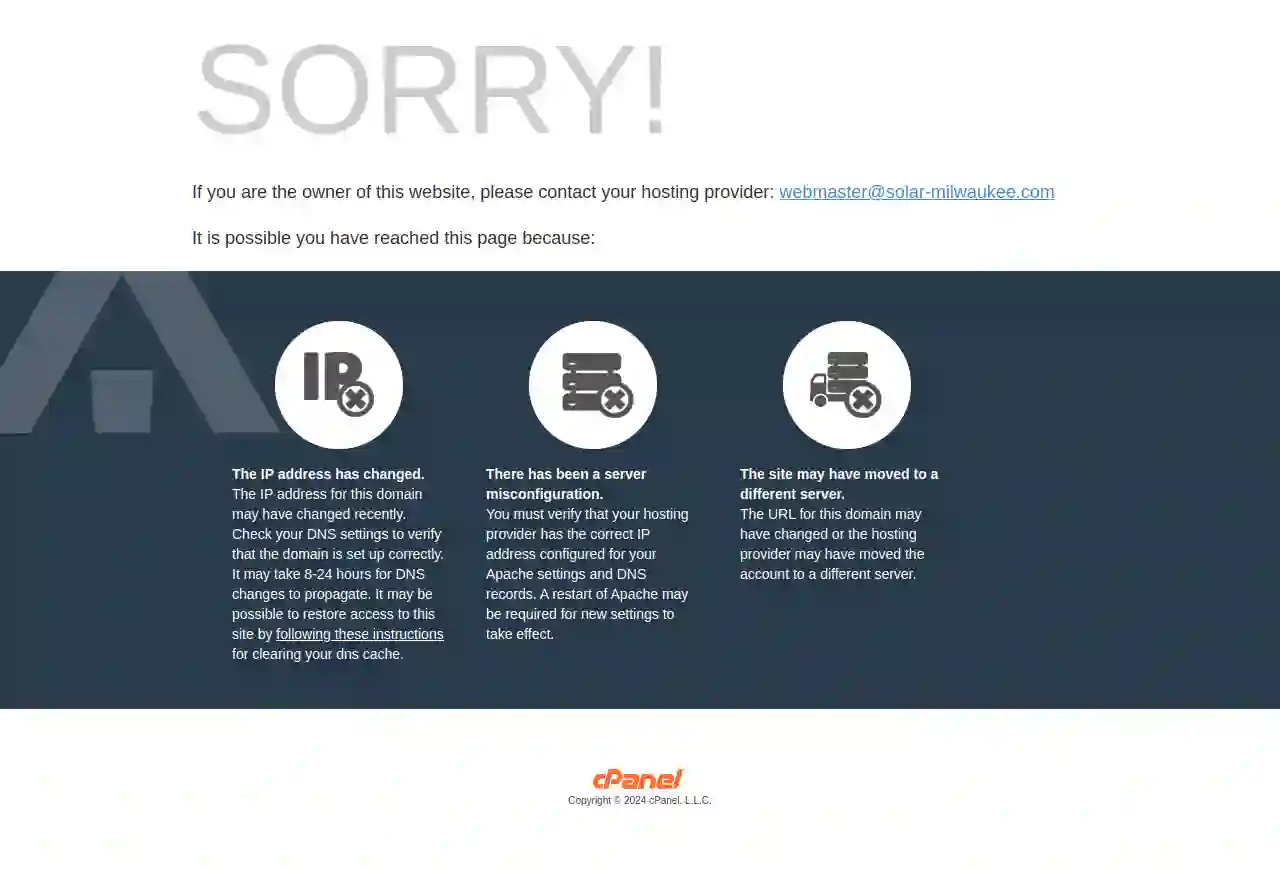Solar Installers Kaukauna
Find top Solar Companies in Kaukauna
Receive 3 FREE Solar Installation Companies quotes for your project today! Compare profiles, reviews, accreditations, portfolio, etc... and choose the best offer.

Wisconsin Solar Design Inc.
2500 Pleasant View Road, Middleton, WI 53562, Madison, 53562, USEstablished in 1981, Wisconsin Solar Design, Inc. has provided thousands of public, commercial, and residential clients with custom glazed structures. Their team of architects and engineers utilize the latest in CAD and 3D modeling to prepare drawings and virtually mock-up details. This enables them to quickly and precisely fabricate projects in their modern shop facility. Wisconsin Solar Design offers standard and custom glazed structures to meet unique project requirements, including metal-framed glass systems, metal-framed translucent systems, point-supported glass systems, standing seam polycarbonate panel systems, and more.
- Services
- Why Us?
- Accreditations
- Our Team
- Testimonials
- Gallery
Get Quote
Epic Electric and Solar Inc.
48 reviewsEpic Electric and Solar Inc., 1310 Droster Rd, 1310 Droster Road, Madison, 53716, USEpic Electric and Solar is a residential electrical service provider specializing in electrical services and solar installations. They are dedicated to providing customer service that is second to none. Their mission is to save customers time and money by combining deep experience, high-quality parts, and dedication to delivering exceptional service.
- Services
- Why Us?
- Accreditations
- Our Team
- Testimonials
- Gallery
Get Quote
Solar Forma Design
1106 Mondovi Rd Suite 209, Eau Claire, 54701, USSolar Forma Design is a company that specializes in solar-powered products, including the E-CACIA Solar Tree, WAVE Solar Carport, POD Solar Seating, and MYKĒS Conduit Seating. They aim to redefine solar energy for good and have been a grant recipient of the UW System Ideadvance Seed Fund.
- Services
- Why Us?
- Accreditations
- Gallery
Get Quote
CSI Sun
Highland Solar Store, Highland, WI, 869 North Main Street, 53543, USCSI Sun is a member of the North American Solar Stores retail network (NASS). This international network of retail solar showrooms has been created to enhance the buying experience for folks like you who want to take control of your electric, hot water and heating bills. The NASS network has been created to ease the frustration and confusion experienced by customers as they seek out reliable, dependable and accurate information on a solar system.
- Services
- Why Us?
- Accreditations
- Our Team
- Testimonials
- Gallery
Get Quote
Renew Wisconsin Inc
4.25 reviewsSuite 300, Madison, WI, 214 North Hamilton Street, 53703, USRENEW Wisconsin is a nonprofit organization dedicated to building a stronger, healthier, more vibrant Wisconsin through the advancement of renewable energy. We work on policies and programs that expand solar power, wind power, renewable fuels, local hydropower, building electrification, energy storage, and electric vehicles.
- Services
- Why Us?
- Accreditations
- Our Team
- Testimonials
- Gallery
Get Quote
Au Solar Services LLC
512 reviewsWest Allis, WI, 53214, USAu Solar Services is a certified Enphase Technician providing a range of services including Enphase system servicing, underproduction assessment, critter guard installation, panel removal and reinstall, off-grid solar and storage install, and solar snow guard. With 3 years of experience in the solar industry, a Residential Journeyman Electrician license, Better Business Bureau Accreditation, NABCEP Photovoltaic Associates Degree, Enphase Energy System Certifications, and MREA membership, clients can trust in the highest quality care for their solar systems.
- Services
- Why Us?
- Accreditations
- Our Team
- Gallery
Get Quote
Everlight Solar
4.5852 reviewsVerona, WI, 1155 Ambition St, Suite 100, 53593, USEverlight Solar is a leading provider of solar energy solutions, dedicated to helping homeowners and businesses harness the power of the sun to save money and reduce their carbon footprint. With a team of experienced professionals and a commitment to quality, Everlight Solar offers a range of services including solar panel installation, maintenance, and repair. They are certified by NABCEP and have received numerous awards for their work, including being named one of the fastest growing companies in the US by Inc. 5000.
- Services
- Why Us?
- Accreditations
- Our Team
- Testimonials
- Gallery
Get Quote
SunVest Solar LLC
4.18 reviewsN27 W24025 Paul Ct, Suite 100, Pewaukee, 53072, USSunVest Solar, LLC is one of the largest vertically integrated developers of distributed solar projects in the United States. Our mission is to advance clean energy nationwide with turnkey, cost-effective solar solutions. We offer business, nonprofit, and utility partners expertise across the value chain, including development, construction, financing, and operations. We develop community solar projects in key markets nationwide, distributed solar for commercial/industrial customers, and solar assets for utilities, co-ops, and municipalities.
- Services
- Why Us?
- Accreditations
- Our Team
- Testimonials
- Gallery
Get Quote
Solarus
3.6132 reviews440 East Grand Avenue, Wisconsin Rapids, WI 54494, 54494, USSolarus is a locally owned and invested company that provides fast, reliable, and affordable fiber internet services. They offer various speed options including Economy, Family, Deluxe, Premium, and Ultra, catering to different needs and budgets. The company is committed to the success of the communities they serve and has a strong presence in Wisconsin Rapids and Manawa. They provide 24/7 local tech support and have a team of knowledgeable and professional staff. Solarus also supports local initiatives and community events, demonstrating their commitment to giving back.
- Services
- Why Us?
- Accreditations
- Our Team
- Testimonials
- Gallery
Get Quote
Solar Co of Milwaukee
51 reviewsMilwaukee, Wisconsin, USA, 123 Solar Way, 53202, USSolar Co of Milwaukee is a trusted partner for solar panel installation in the Milwaukee, Wisconsin area. Our network of industry experts specializes in residential and commercial installations, off-grid systems, and energy storage solutions. We are passionate about renewable energy and sustainable practices, providing top-notch service and support from start to finish. Our goal is to help you reduce your carbon footprint and save on your energy bills.
- Services
- Why Us?
- Accreditations
- Our Team
- Testimonials
- Gallery
Get Quote
Over 4,210+ Solar Contractors on our directory
Our solar providers operate in Kaukauna and surroundings!
SolarCompaniesHub has curated and vetted the Best Solar Businesses arround Kaukauna. Find a trustworthy business today.
Frequently Asked Questions About Solar Installers
- Cash Purchase: The most straightforward option, providing the greatest long-term savings but requiring a larger upfront investment.
- Solar Loans: Loans specifically designed for solar installations, often with favorable terms and interest rates.
- Solar Leases: A third-party company owns the system and leases it to you, allowing you to go solar with little or no upfront cost, but you won't own the system or receive tax benefits.
- Power Purchase Agreements (PPAs): Similar to leases, but you pay for the electricity generated by the system, not the system itself.
- Home Equity Loans or Lines of Credit: Borrow against the equity in your home.
- Keep Panels Clean: Clean panels periodically to remove dirt, debris, and bird droppings, which can reduce efficiency. Rainfall usually cleans panels adequately, but you might need to hose them down occasionally.
- Visual Inspections: Regularly inspect panels for signs of damage, loose wiring, or other issues.
- Professional Maintenance: Consider having a professional solar installer inspect your system every few years to ensure optimal performance.
How can I finance my solar panel installation?
How do I maintain my solar panels?
Do solar panels increase my home value?
What happens to my solar panels during a power outage?
How can I finance my solar panel installation?
- Cash Purchase: The most straightforward option, providing the greatest long-term savings but requiring a larger upfront investment.
- Solar Loans: Loans specifically designed for solar installations, often with favorable terms and interest rates.
- Solar Leases: A third-party company owns the system and leases it to you, allowing you to go solar with little or no upfront cost, but you won't own the system or receive tax benefits.
- Power Purchase Agreements (PPAs): Similar to leases, but you pay for the electricity generated by the system, not the system itself.
- Home Equity Loans or Lines of Credit: Borrow against the equity in your home.
How do I maintain my solar panels?
- Keep Panels Clean: Clean panels periodically to remove dirt, debris, and bird droppings, which can reduce efficiency. Rainfall usually cleans panels adequately, but you might need to hose them down occasionally.
- Visual Inspections: Regularly inspect panels for signs of damage, loose wiring, or other issues.
- Professional Maintenance: Consider having a professional solar installer inspect your system every few years to ensure optimal performance.